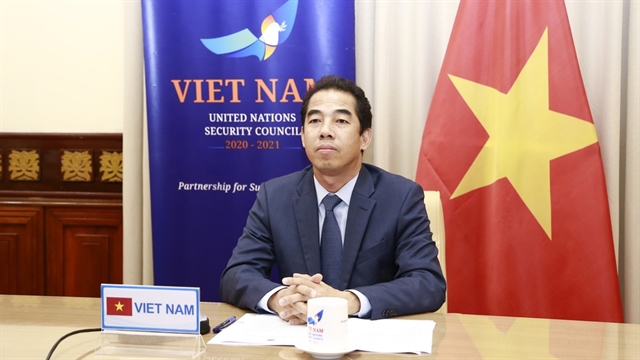 Politics & Law
Politics & Law


|
| Deputy Foreign Minister Tô Anh Dũng. — Photo from the Ministry of Foreign Affairs |
HÀ NỘI — Deputy Foreign Minister Tô Anh Dũng attended the UN Security Council’s Open Debate on Pandemics and Security on Thursday, during which he said that intensifying international solidarity and multilateralism is a solution to current challenges.
Dũng emphasised the importance of fostering collaboration in responding to the COVID-19 pandemic and promoting socio-economic recovery.
"Multilateral organisations, especially the UN with its central role, can play a key part in coordinating pandemic prevention and control efforts," he stressed.
The Vietnamese diplomat called on all parties involved in conflicts to follow UN Secretary-General António Guterres' appeal for a global ceasefire amid the pandemic, while suggesting the UN Security Council to take stronger actions to ease tensions, build trust and boost reconciliation and dialogue to seek long-term solutions to conflicts.
Dũng affirmed Việt Nam's support for the UN chief’s call for easing sanctions which affect COVID-19 response efforts and hopes that the council and its member states take proper measures to facilitate humanitarian aid for sanctioned countries for the interests of their citizens.
He also told participants that Việt Nam had taken early actions to prevent negative impacts of the pandemic by mobilising the engagement of the entire political system, resulting in its low caseload and zero deaths so far.
Việt Nam has also provided timely support and shared its experience in combating COVID-19 with many countries in the region and in the world, as well as made financial contributions to World Health Organisation’s COVID-19 response fund, he added.
At the video conference, Guterres said that the COVID-19 pandemic continued to profoundly affect peace and security across the globe, and made many countries postpone their elections, intensified tensions and violence in many countries, worsened the risks of bioterrorist attacks, and caused negative impact on people around the world, especially vulnerable groups such as women, children and refugees. — VNS




